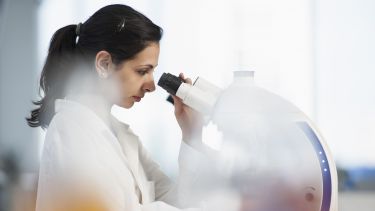- The ‘YORKSURe’ trial is investigating whether urine self-testing kits and community early detection clinics are an effective way of screening for bladder health problems including bladder cancer
- The kits are being sent to 3,000 men across the region aged between 65 and 80
- Bladder cancer is a particular problem in Yorkshire. Every year in Yorkshire, nearly 1,000 people are diagnosed with bladder cancer and more than 400 people die from it.
- Incidence rates are higher in the region than in England as a whole, and death rates from bladder cancer are also higher than the England average in some parts of Yorkshire, such as Barnsley, East Riding of Yorkshire, Hull, Leeds, York and Wakefield.
Thousands of people across Yorkshire will start receiving urine self-testing kits in the post as part of a pioneering urine screening trial funded by Yorkshire Cancer Research.
The ‘YORKSURe’ trial is investigating whether urine self-testing kits and community early detection clinics are an effective way of screening for bladder health problems including bladder cancer.
The kits are being sent to 3,000 men across the region aged between 65 and 80. The trial will also offer kits to an additional 2,000 men and women taking part in a lung screening trial funded by Yorkshire Cancer Research to help determine whether urine screening can be embedded within community lung cancer screening programmes.
Led by Professor James Catto, Professor in Urological Surgery at the University of Sheffield and National Institute for Health Research (NIHR) Research Professor, the trial will evaluate how likely people are to return their kits and whether self-testing leads to earlier diagnosis and improved survival rates where bladder cancer is found.
The study is being supported by Peter Sasieni, Professor of Cancer Prevention at King’s College London and co-ordinated by the King’s College London Cancer Prevention Trials Unit (CPTU).
Professor Catto, from the University of Sheffield’s Department of Oncology and Metabolism and Honorary Consultant Urological Surgeon at Sheffield Teaching Hospitals NHS Trust, said: “The distribution of self-testing kits marks a key milestone for this important study. As well as investigating whether the idea works, the trial has the potential to directly save lives by providing people in Yorkshire with access to a simple diagnostic test they can complete in the comfort of their own homes.
A quarter of bladder cancer cases are diagnosed at a late stage, after symptoms have become apparent. Screening can help find cancer before symptoms start. This means cancer can be diagnosed early when there are usually more treatment options available.
Professor James Catto
Professor in Urological Surgery at the University of Sheffield
Bladder cancer is a particular problem in Yorkshire. Every year in Yorkshire, nearly 1,000 people are diagnosed with bladder cancer and more than 400 people die from it. Incidence rates are higher in the region than in England as a whole, and death rates from bladder cancer are also higher than the England average in some parts of Yorkshire, such as Barnsley, East Riding of Yorkshire, Hull, Leeds, York and Wakefield.
People receiving the at-home kits, which are being provided by TestCard Ltd, will be asked to self-test their urine using a test strip which can detect traces of blood and other abnormalities. Those with a positive result will receive further urine testing and an ultrasound scan at a community early detection clinic.
Dr Kathryn Scott, Chief Executive at Yorkshire Cancer Research, said: “At Yorkshire Cancer Research, we fund world-leading research that helps save lives right here in Yorkshire. By looking at how we can best screen for bladder cancer, the YORKSURe trial is helping do just that. We are grateful for the generosity of people across the region whose support has made this important clinical trial possible.”
If successful, findings from the YORKSURe trial will be used to inform future bladder cancer studies and could lead to a national screening programme.



